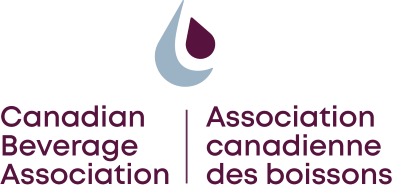Denmark abolishes soft drink tax
Economically damaging, the measure has not proven to achieve any public health objectives
TORONTO, April 30, 2013 /CNW/ - The Canadian Beverage Association reaffirms that education, not taxation, will be key to combatting obesity, a complex health issue that shouldn't be addressed with simplistic solutions or used as an excuse for a tax grab.
Following closely on its decision to reverse a year old fat tax, the Danish government announced last week that it would phase out the existing soft drink tax by the end of the current year. The vote was supported by an overwhelming majority of the parties in the Danish legislature and represents a clear recognition of the inefficiency and negative economic impact of such measures.
"We should learn from the Danish experience. Their soft drink tax was damaging to the local economy, fueling cross border trade, and it hasn't delivered concrete benefits to public health," said Jim Goetz, President, Canadian Beverage Association. "The Canadian Beverage Association and its members believe that the solution to the obesity issue lies in education and in offering Canadians the tools and products necessary to help make informed decisions and choices. Punitive taxation of specific products such as beverages will not achieve this, while it will hurt Canadian families financially."
Obesity experts acknowledge that no one single food or beverage can be held responsible for weight gain. In fact, the Canadian government looked at fats, carbohydrates, protein and fibre in the diet and concluded that "it is not what you eat, but rather, how much - the total number of calories consumed - that significantly contributes to obesity".1
Furthermore, the 2012 Statistics Canada report, Food Statistics2 identified that between 1999 and 2011 consumption of soft drinks in Canada decreased by 32% yet at the same time obesity rates in Canada continued to rise.
"The beverage industry offers a wide variety of hydration options including no and low calorie beverages, and soft drinks are a declining source of calories in Canadians' diets" adds Goetz. "The Canadian Beverage Association feels that the focus should be on meaningful solutions that promote healthier diets overall, as well as increased physical activity."
The beverage industry is also working to provide Canadians with the tools and products necessary to help make informed decisions about beverage choices for themselves and their families. This includes Clear on Calories, a front of pack caloric labeling initiative designed to help Canadians understand the caloric content and serving size of the beverages they are choosing. It is currently rolling out across the country.
The Canadian Beverage Association (CBA) is the national industry association representing the broad spectrum of brands and companies that manufacture and distribute the majority of non-alcoholic beverages consumed in Canada.
-----------------------------------
1 Langlois K, Garriguet D, and Findlay L. Diet composition and obesity among Canadian adults; Health Reports (Statistics Canada), October 2009, Cat.no.82-003-X
2 Source: Statistics Canada. Table 002-0011 - Food available in Canada, annual (kilograms per person, per year unless otherwise noted), CANSIM (database). http://www5.statcan.gc.ca/cansim/a26;jsessionid=240926578C8E6E0BA730E56D476295B9?id=0020011&pattern=&csid=&retrLang=eng&lang=eng
SOURCE: Canadian Beverage Association

Stephanie Baxter
416 362 2424
[email protected]

Share this article